IN ENGLISH
Mysteries of the Parallel Service
Objavljeno prije
12 godinana
Objavio:
Monitor online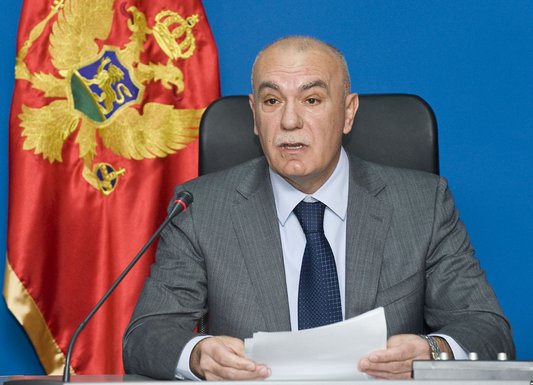
Boro Vučinić has recently been appointed the sixth Director of the Secret Services since the introduction of a multi-party system in Montenegro. He took over the position from Vladan Joković, who resigned last winter “motivated by personal reasons.” Little did anyone believe in such an explanation, since Joković resigned after the publication of a (not)falsified list of conversations between Igor Lukšić and Milan Roćen with Darko Šarić, an affair that implied alleged links between the Prime Minister and the Minister of Foreign Affairs and European Integrations with the head of organized crime whose associates in Montenegro are now convicted by non-enforceable judgements of money laundering. In the context of Montenegro approaching full NATO membership, the National Security Agency (ANB) is in focus, which should, together with other state bodies, actively participate in the implementation of measures for criminal prosecution of perpetrators, co-perpetrators, instigators, supporters and/or other persons who are in any way related to money laundering. Such an ANB role is described in the Second Annual National Program, a document submitted by Lukšić’s government in September 2011 to NATO.
However, well-known and proven facts compromise fine-grained writing. Darko Šarić, for instance, smoothly passed the security check of the ANB. It has been documented that with Safet Kalić, now accused of money laundering, secret service officers had unusually cordial contacts for at least a decade.
Zoran Lazović and Duško Golubović, high-ranked ANB officials, are most often publicly connected with the criminal milieu. Despite the fact that the Prime Minister Lukšić indirectly advised them to retire on 16 January, both of them are still active, although, it is claimed, without concrete operational responsibilities. However, this in reality does not mean much, because their roles are only partially determined by a special act of systematization.
According to Nebojša Medojević, Lazović and Golubović are the link with a group of officers specializing in espionage, who for years allegedly worked “in a parallel secret service for the needs of Milan Roćen and DPS president Milo Djukanović”. The subjects of their supervision are judges, prosecutors, non-governmental sector activists, businessmen, competitors or factions in the establishment, as well as “competitors in criminal matters and in public procurements”. Parallel service was reportedly formed because ANB’s maneuvering space for abuse was reduced.
Discussions were held on 15 February, at a session of the parliamentary Defense and Security Committee, when Boro Vučinić threatened Medojević before the appointment as the director of ANB, alternatively, he said that “they would deal with him if the prosecutor does not do it.” He tried to deny that in 2007, with no written evidence of compulsory security checks, prominent members of the former Military Security and Military Intelligence Agency, known as KOS and VOS, were employed and later deployed to extremely sensitive places in the Ministry of Defense.
Some of them, such as Colonel Vladislav Vlahović (now the Head of the military segment of the Montenegrin Mission in Brussels) and Lieutenant Colonel Darko Burić (on duty in the General Staff of the Montenegrin Army), were men of the General Branko Krga, Chief of the Intelligence Administration in two mandates (1994-1997, 1999-2001) and then until 2005 as the Deputy and then Chief of the General Staff in Belgrade.
Medojević claims that a parallel service was formed “in order to maintain ties with the Russian security structures with which military intelligence agents had previously cooperated.”
The Officers Vlahović and Burić ran the 123rd and/or 3rd center of the Intelligence Administration in Podgorica at different intervals. Their mentor, Branko Krga, has been in the vortex with Milan Roćen for two decades, because until 1994, they had served together in Moscow – Krga as the military attaché, while Roćen was the Charge d’Affairs at the FRY Embassy. Recently, for the Sarajevo-based magazine Dani, Krga talked about his recollections from that time, so he acknowledged that they provided contacts in Moscow to Radovan Karadžić.
After Krga, the military attaché in Moscow and Roćen’s colleague was Radoslav Škorić, who was later general, from 2002 to 2003, the Head of the Intelligence Administration who formed the 3rd center in Podgorica and appointed Lieutenant-Colonel Burić as the Chief. Škorić was dismissed after one lieutenant colonel was arrested in Belgrade in September 2003 for the crime of espionage in favor of Russia.
Several officers accused of illegal espionage, according to Vučinić’s permission, gave public statements and tried to deny Medojević’s allegations. All of them, as the proof of their correctness, are referring to the fact that in 2009, ANB checked them so that they could obtain a security clearance for access to classified NATO information.
However, this is a procedure on a different basis, not a background check that had to be done by 2007 and on which Medojević insisted. Three members of ANB, with the previous history of undermining Belgrade’s military agency work ahead of the referendum, were then directly in charge of the checks at the Ministry of Defense: Božidar Lakić (now retired), Predrag Abramović (transferred to a bank to a security position) and Veselin Mazić.
In the Second Annual National Program, Igor Lukšić’s government reported in the autumn to NATO that “after the completion of the assessment of vulnerability, the updated plans for keeping and handling classified information were adopted”.
NATO reportedly observed serious problems in the security sector of Montenegro. There is a fear of or possible confirmation of the illegal leakage of NATO information submitted to the Directorate for the Protection of Classified Information, which is kept in the building of the Ministry of Defense, and for whose security ANB is responsible.
Such a conclusion is indirectly derived from the fact that last year the ANB appointed a special “responsible person” for performing internal control over the implementation of the measures for the protection of classified information. Previously, the Montenegrin officials claimed that the security of NATO information was maximum. In the meantime, the Ministry of Defense has launched contradictory information about the parallel service. They said at the beginning of February that this department and the Montenegrin Army “do not have and did not have eavesdropping equipment and devices”. Later on, the new Minister of Defense, Milica Pejanović-Djurišić, alluding to their obsolescence and inefficiency, mentioned certain “megaphones, dictation machines and record players”.
The Army without the Service
For years, Boro Vučinić unsuccessfully tried or just pretended to try to legalize, without ANB, a special, transparent, “military service”, which is, after all, a NATO standard.
However, the military security operations are still in the jurisdiction of ANB. In April of last year, the Law on Amendments and Supplements to the Law on ANB was adopted, which “extended the competencies of the Agency to issues of importance for the defense interests of Montenegro and fulfillment of strategic security goals and interests (intelligence and counterintelligence activities in the field of defense).”
On the data gathered in this area, ANB reports to the Council for Defense and Security (Filip Vujanović, Ranko Krivokapić, Igor Lukšić), as well as to the Minister of Defense and the Chief of General Staff of the Montenegrin Army.
On 29 July 2011, ANB signed an Agreement on Cooperation in the Field of Intelligence and Counterintelligence Operations with the Ministry of Defense, which, among other things, regulated the sending of ANB representatives to the Ministry of Defense, which occurred only at the beginning of December last year.
The Minister of Defense, Milica Pejanović-Djurišić has recently said that the special military service “has not yet been formed”.
Counterattack against Medojević
The counterattack against Nebojša Medojević, who for two or three years has been insisting on the fact that an illegal secret service is operating within the Ministry of Defense, was also joined by Ivan Mašulović, appointed from last winter as the Assistant Minister of Defense for the defense policy, previously the Head of the Criminal Investigation Police, security guard at the Ministry of Foreign Affairs of Milan Roćen, Head of ANB for Podgorica, advisor of Igor Lukšić.
Mašulović as part of the public reaction on 16 March – only three days after Milica Pejanović-Djurišić was appointed – said that he would press charges against Medojević “because of the untruths”. He did not deny the connection with Andreja Savić, former Director of the Security and Information Agency of Serbia, with whom he published certain police textbooks – what the Monitor wrote about – but on that occasion Mašulović stated:
„I have never seen or heard from Mr. Branko Krga, nor have I talked to him on any basis, and I simply do not know him. Also, I have never held a single lecture at the Academy for Diplomacy and Security (ADB) in Belgrade, nor have I physically ever entered this facility. The only connection I have with ADB is that one of my books is used as supplementary literature in the field of security management”.
It is not clear when Mašulović is telling the truth, because he denies himself. In his chrestomathy “Security of the European Union” (Podgorica, 2009), co-authored by Andreja Savić, Mašulović wrote in his biography that he was “an associate” of ADB.
The founder of ADB is a controversial businessman Nenad Djordjević, who until 2007 was the owner of a part of the island of Hawaii near Budva. Andreja Savić and Branko Krga are lecturers at ADB.
At the end of 2011, Ivan Mašulović, during the mandate of Boro Vučinić, was appointed as the Assistant governing the Sector for Defense Policy, and in that way, according to the systematization of the Ministry of Defense, he oversees the operational links of official Podgorica to NATO, including the Directorate for the Protection of Classified Information, military-diplomatic representatives, Department for International Cooperation and Department for NATO and the European Union.
During the visit to the headquarters of ANB as a member of the Security and Defense Committee, Nebojša Medojević asked the competent officers whether foreign partners, including the US DEA (Drug Enforcement Administration), asked for checks on whether Ivan Mašulović also “disclosed information” to Dragan Fric Dudić.
He did not get a specific answer to that question.
For a few years, Mašulović was the head of CB Herceg Novi, under whose jurisdiction was Kotor, the town from which Dudić worked.
Vladimir JOVANOVIĆ
Komentari
IZDVOJENO
IN ENGLISH
The case of Vitaliy Grechin’s group and girls allegedly rescued in Porto Montenegro: Fight against human trafficking or scapegoating for box-ticking
Objavljeno prije
3 sedmicena
6 Jula, 2024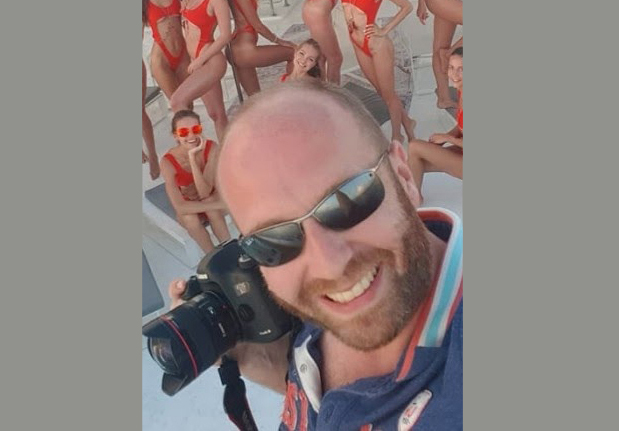
The Grechin case raises doubts that good statistics on fighting organised crime are more important than the fight itself. The prosecutor claims it’s a trafficking in women case whereas the allegedly trafficked women and the defence claim the opposite
Montenegro can hardly escape serious criticism in periodic reports on human rights violations and organised crime published by competent international organisations. However, the inadequate fight against human trafficking is the most serious objection. The State Department (SD) released the latest global report on human trafficking four days ago in Washington D.C. with highlights made by the US Secretary of State Anthony Blinken. When it comes to Montenegro in particular the report says “the Government does not fully meet the minimum standards for the elimination of human trafficking, but is making significant efforts to do so.” However, “the government demonstrated overall increasing efforts” compared to very bad 2023; thus Montenegro was upgraded to Tier 2 countries.
One of the “increasing efforts”, although not mentioned in the report, could be the case of a US citizen Vitaliy Grechin and his three friends, two Ukrainians – Oleksandar Lishchynsky and Oleksii Blahoslavov and one Russian – Bogdan Petrov. The case raises suspicion that another fixing of statistics with technical/cosmetic embellishments might be in place, which was a common practice during the previous regime. Although the governing power has been changed, the Montenegrin courts, the state prosecution (with exception of the Special Prosecutor’s Office) and the police have remained largely unreformed and staffed with the vetted appointees of the former Democratic Party of Socialists (DPS) regime.
The indictment says that in October 2023, Grechin, together with the other three, then “a certain Marko R from Belgrade” and “a photographer Aleksandar from Russia” recruited and transported the victims in an organised manner “for the purpose of sexual exploitation and use for pornographic purposes”. The aforesaid Grechin, Blahoslavov and Petrov bought plane tickets for the girls and waited for them at the airports in Tivat and Podgorica, then transported them to “exclusive hotels and accommodation – villas and Hotel Regent in Porto Montenegro”. It is further claimed that the defendants “organised in advance the unannounced photographing and recording of naked bodies with the aim of sexual exploitation and use for pornographic purposes on (Internet) platforms”. Moreover Petrov was subsequently charged with facilitating the use of narcotics (Article 301 of the Criminal Code) since he had prepared a so-called joint at the request of one of the girls and left it ready for use on her bedroom terrace. The Forensic Centre in Danilovgrad found that the cigarette contained 0.06 grams of cannabis, while further 0.2 grams of cannabis remains were found on the grinder.
The topic is a very delicate one and requires a careful examination before jumping to conclusions. According to the case files, which the Monitor had access to, not a single girl believes she has been “rescued” by Montenegrin police. Out of 15 girls who gave statements before the prosecutor, 10 girls had serious objections to the behaviour of police officers. In the statements (made in November 2023, January and February 2024) the “rescued” girls described the Montenegrin police treatment of them as “rude”, “terrible” and “cruel”. They complained that they were “refused a lawyer”, denied a copy of their statement. They object to the official interpreters’ bias and deliberate mistranslation. Several of them said they were kept without food and water for hours, while one described how “a police officer hit the wall above my head when I wanted to say something”. Another said that “at the hotel they examined our bodies by undressing us in front of men” thus making her “morally and physically humiliated”. The police “kept us for 12 hours without food or drink and gave us no explanation” for such a treatment. Another girl described how the police officers “took us to the hotel to pick our things and were pulling us by our shirts, I felt malice and injustice”. One girl complained that “the police wrote down what I did not say” and that she signed the statement under pressure.
The only girl out of 18 alleged victims who joined the criminal prosecution against Gretchin is MM from Israel. One of Grechin’s lawyers, Nebojsa Golubovic, requested the court at the pre-trial hearing to exclude her statement from the case files because she consented to press the charges against Grechin at the time when the prosecutor was alone with her, without presence of the defence lawyers – which is against the law. The court records show that MM was interrogated without any lawyer being present on November 1, 2023, from 10:39 PM to 11:00 PM. In a recent telephone interview with the Monitor MM said that she had signed the statement “under pressure from the prosecutor and the police” having already been held for 6 hours. They wouldn’t allow her to call her parents. She says that no one translated what she was signing and that she was told that she could contact her parents only after she signed the statement. MM says that she doesn’t consider herself “rescued” by Montenegro’s police whereas Grechin is her longtime friend. Several other girls confirmed the same, saying that they came to Montenegro freely and that they had documents and money with them all the time and that they could move around freely. Some of them came with their parents and children to Montenegro several times and showed photos from 2023 and preceding years as a proof.
So far the HPO has not reacted to the accusations. The Monitor was told that a legal representative of 13 girls would soon file criminal charges against the police, both for inhuman treatment and for confiscating money, valuables and electronic devices from the girls. The Monitor also reached out a couple of local organisations that are specialised in protection of vulnerable groups and women’s rights. Both organisations refused to comment on the case files and/or get officially involved so as to monitor the proceedings.
The prosecutor in charge does admit in the indictment that, except for one, “the other witness statements (14 out of 15) do not correspond with the material evidence”, which raises the question of identification of human trafficking victims. The HPO refers to the statement of the European Court of Human Rights that “the victims themselves are often not aware that they are victims”. In this case, the public prosecutor claims that “in the case of existing material evidence – i.e. photographs and recordings obtained through searches of electronic devices, the inconsistency of their statements must be interpreted as the fear of the consequences of the proceedings and as the fear of the defendants themselves”. The prosecutor further points out that “the witnesses who didn’t testify in favour of the defendants, and even the witness who has joined the criminal prosecution, together with the witnesses who testified in favour of the defendants, eventually submitted their authorisation for use of the aforementioned photographs and recordings”. That was done “through the defendants’ attorneys and not through their appointed (by the prosecutor) attorney”.
The defence lawyers reject the prosecutor’s reasoning as in that line of work the so-called release forms are almost always signed when the photos are accepted for publication. This can be verified on the websites of several big photography agencies which provide similar services.
The prosecutor also claims that the material found in electronic devices has “explicit” and “pornographic” content. The allegation is pretty questionable though as it makes no distinction between pornography and erotica. Among the “evidence” are photos published in renowned American erotic magazine Playboy (Russian-language edition), for which Grechin and internationally awarded photographer Oleksandar Lischynsky worked for many times. Lischynsky lives in the Netherlands and erotic art photography is his specialty. Besides Playboy, he had his photographs published in other similar magazines, and on websites. He also held exhibitions in Germany and other EU countries. Some of the presented Playboy editions of 2019 and 2020 have bylines of Lischynsky (as a photographer) and Grechin (as a spatial designer).
One of Grechen’s attorneys Mr Vuk Jaredic submitted to the court the analysis of Dr Nikola Markovic PhD, a court expert in the field of art history – fine and applied arts. Dr Markovic made the report at the request of Mr Jaredic. He states that “when it comes to the aforesaid material, it is clearly visible that the author (Lischynsky) carefully and responsibly avoided any display of pornography or any content that ultimately could be noticed and recognised for explicit display or sexual organs or other sexual acts”. He further states that “it is clear that the aforesaid photographic material was not created for the purpose of any sexual gratification, but rather it was the author’s endeavour for an aesthetic solution whereby he tries to express his creative approach”.
Another court expert (for copyrights) Professor Miodrag Jovanovic PhD drafted his analysis upon Mr Jaredic’s request. Based on the statements of the each girl and their subsequent signed authorisation, he says that it proceeds that “the photographs and recordings made on 30 October 2023 are the authorship and intellectual property of Oleksandar Lischynsky”. Furthermore ”he had the absolute right to distribute, sell, give away and publish the aforesaid photographs and recordings, and to transfer the rights to third parties” concludes Professor Jovanovic.
Copies of the Playboy magazine were handed by the defence attorneys to the then chairman of the High Court in Podgorica Mr Boris Savic at the pre-trial hearing (for control and review of the indictment) on 14 May this year. Public prosecutor Ana Kalezic did not turn up at the hearing. The defendants and their attorneys vehemently opposed the allegations in the indictment and asked the High Court chairman to reject the indictment as the deeds described therein do not constitute the criminal offence of human trafficking. The four have been in the pre-trial detention for eight months now.
Komentari
IN ENGLISH
MONTENEGRO DENIES REFUGE TO LUKASHENKO CRITIC: Montenegrin Ministry of Interior claims that Belarus is a Democracy
Objavljeno prije
1 mjesecna
25 Juna, 2024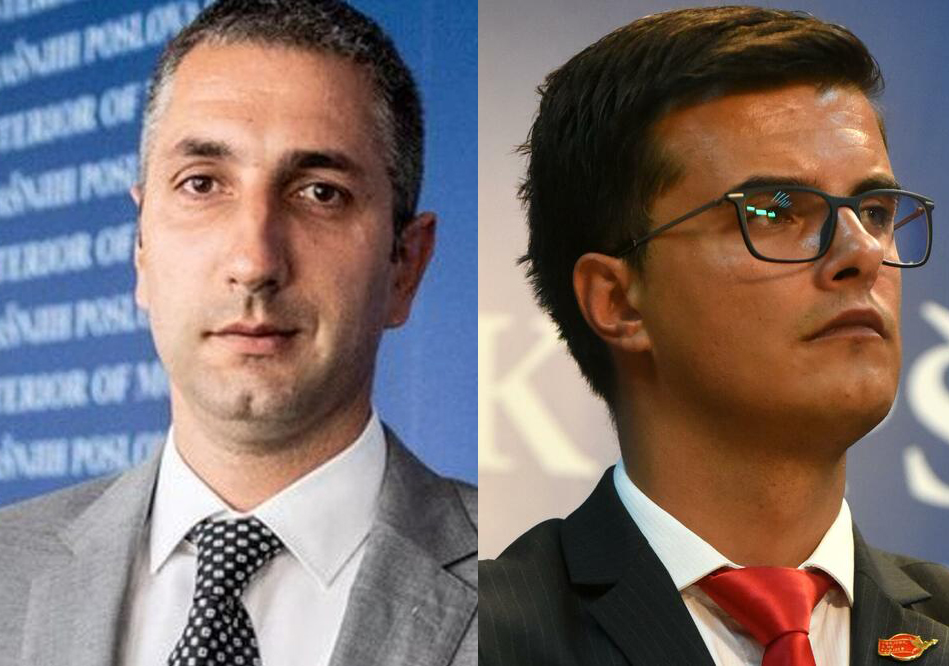
Based on the Ministry of Interior’s decision signed by Radovan Popovic, deputy minister and head of the Directorate for Administrative Affairs, Citizenship and Foreigners, it appears that Belarus is a democratic country where life is safe and full of opportunities. Popovic in his decision UP I-132/23-6651/3 dated 5 June 2024, has rejected the request for international protection filed by V.I (citizen of Belarus) because “there is no justified fear of persecution” in his home country
The High Court in Belgrade recently ruled again that Andrei Gnyot, a Belarusian film director, journalist and opposition activist, should be extradited to the totalitarian regime in Minsk based on the Interpol warrant issued by Belarus. He was arrested at the Belgrade airport on 30 October last year where he flew from Thailand. He was immediately taken into extradition custody to the Central Prison (CZ) in Belgrade. He left Belarus in June 2021 upon learning that Aleksandar Lukashenko‘s notorious KGB secret service was ready to go after him for his ties to the opposition. Gnyot is formally wanted for tax evasion amounting to around 300 thousand euros. He never received a hearing summon on the tax evasion accusations in the country. He allegedly committed tax evasion between 2012 and 2018 even though the law that regulates the matter was passed only in 2019. Gnyot rejected those accusations as “politically motivated”. He is one of the founders of the Free Association of Sportsmen of Belarus (FASB), which was set up after the rigged presidential elections in the summer of 2020, which caused massive civic protests and subsequent bloody repression by the regime whose closest ally is Putin’s Russia. FASB led an international campaign which resulted in disqualifying Belarus as the World Hockey Championship host. Moreover, the International Olympic Committee (IOC) has suspended the financing of the Belarusian National Olympic Committee (BNOC) chaired by President Lukashenko himself of which the Monitor already wrote about. The dictator took revenge on FASB by declaring it an “extremist organization”. The association’s lawyer, Aleksandar Danilevitch, was sentenced to ten years in prison. Retaliation followed against other members of the association, except Gnyot who managed to escape.
In the first judgment (7 December 2023), the High Court panel decided in favour of Gnyot’s extradition. Shockingly, the panel of judges even made a precedent by refusing to hear Gnyot about the charges against him. In early March of this year, the Court of Appeal overturned the decision and sent it back for a new decision. However, on 13 June, the first instance court pronounced the same verdict. The journalist has already announced he would appeal the decision. The only good news for Gnyot is that his prison detention of seven months was commuted to house arrest and confinement in a 20-square-meter studio apartment in Belgrade. International and local human rights organizations condemned the verdict and called on the authorities of Serbian President Aleksandar Vucic to end the persecution of political opponents of Minsk and Moscow who have sought refuge in Serbia.
When it comes to Montenegro, one would expect a better situation for asylum seekers, especially after the fall of the 30-year autocratic government of Milo Djukanovic and his Democratic Party of Socialists (DPS) whose role models were Vladimir Putin and Lukashenko. However, Belarusian national V.I. (who asked not to have his full name disclosed) thought so. However, the Ministry of Interior (MUP) proved him wrong. Radovan Popovic, the deputy interior minister and head of the Directorate for Administrative Affairs, Citizenship and Foreigners, considers Belarus a democratic country where life is safe and full of opportunities. The MUP decision has no mention of the ongoing war against Ukraine in which Belarus indirectly joined Putin by putting at his disposal its military bases, weapons, logistics and territory which served as a springboard for early drive on Kyiv. Popovic in his decision UP I-132/23-6651/3 dated 5 June 2024, rejects the request for international protection to the Belarusian citizen because “there is no justified fear of persecution” in the home country.
V.I., whose family already lawfully resides in Montenegro and runs a successful private business, requested protection upon his arrival in Montenegro on 27 July 2023 because of a threat that Lukashenko’s authorities would imprison him for political activism. Namely, after the disputed presidential elections in the summer of 2020, large protests broke out in the country. The wife of V.I. participated while he stayed aside fearing for the wellbeing of his private construction company. However, when the authorities began to violently break up the protests, V.I “couldn’t stay on the side-lines”. In August 2020 he “recorded a 20-minute video post on YouTube” in which he “publicly announced his position… and supported those who are fighting for free Belarus” and “victory of democracy”. He said that “Lukashenko suppressed the protests by shedding blood” and that “the people should reciprocate in the same way”. After a while, in the spring of 2023, his YouTube post was noticed by the authorities and then V.I.’s problems began. Tax inspections and state controls of his company became frequent for no other apparent reason. Moreover, the bank with which he cooperated for over 10 years suddenly denied him access to loans without explanation. After that, a friend in the KGB told him that the secret service found out about his YouTube video and that the problems with the company were not accidental. In July 2023, he received a phone call from the state security which asked him to come to the premises of the KGB. When asked why, he was told that he would find out upon arrival. He immediately bought a ticket to Istanbul and fled to Montenegro via Turkey, leaving his mobile phone with a SIM card in Minsk in case state security tracked his movements through mobile network towers. Later, he learned from a neighbour in Minsk that Lukashenko’s police came to his house to look for him. Then the police contacted his wife and asked about his whereabouts. She replied that they were not together and that he had left for Russia. V.I. is convinced that if he were to return to Belarus “he would find himself in prison” seeing how the authorities treat other entrepreneurs who expressed their views. The available reports of international organisations and western governments (UN, State Department, EU, HRW, Amnesty Int. etc.) contain many well documented cases of torture in Lukashenko’s prisons. The regime’s common practice is to charge dissenters with treason or rather with bribery/corruption so to be more convincing to the public, both domestic and foreign. Detainees are then forced to “confess their crimes” in front of cameras, as was the case of Roman Protasevitch, a journalist and an opposition activist. He “publicly repented” in front of Lukashenko’s television cameras after he was kidnapped from a Ryanair plane. Namely, Protasevich was on the Athens-Vilnius 4978 flight which he was diverted on 23 May 2021 by the Belarusian authorities under the pretext that a bomb had been placed on the plane. Escorted by a MIG-29 interceptor, the plane was forced to emergency landing in Minsk. The journalist and his Russian girlfriend were snatched away and arrested whereas no reported bomb was found on the plane.
However, all these examples of Protasevitch, Gnyot and over 1,400 political prisoners in Lukashenko’s fiefdom were not convincing enough to Popovic, a close associate of the Interior Minister Danilo Saranovic (a high official of the Democrats of Montenegro) since they “do not meet the requirements of Article 3” of the Asylum Law. Neither the fear of V.I. of what might happen to him if he returns home “prevailed enough” to grant him international protection because “there was no element of persecution”. He is also reproached for not seeking asylum in the first transit country, Turkey, which received 3.5 million refugees from Syria, probably on purpose, overlooking that the applicant’s family already lived in Montenegro with a lawful residence and a successful family business. He wouldn’t be a financial liability to the state if he were allowed to stay with his family in the country of refuge.
Popovic claims in the decision he signed, that in accordance with the Geneva Convention and the Directive on Asylum Procedures, “a country is considered safe when, within the framework of its democratic system, there is generally and permanently no persecution, no torture or inhumane treatment…threats of violence”. Nonetheless “even though, to a certain extent, there are violations of human rights in Belarus”, the MUP finds out that V.I. “can return unhindered to the country of origin, and that his life, freedom and security would not be endangered by his return”. Popovic further elaborates that Belarus is an “industrially developed country” and that its main trade partner is Russia, stressing that natural gas largely transits from Russia to the EU (through Belarus). Popovic praises the construction of the Nord Stream 2 pipeline… from Russia to Germany under the Baltic Sea which was completed in 2021 and “is a factor that has a direct impact on the Belarusian economy”. Popovic apparently forgets that Nord Stream 2 has been closed and partly blown up after the beginning of invasion of Ukraine. He doesn’t bother to explain what the gas pipeline has to do with fate of V.I. if he would return home. Popovic also praises Belarus for receiving 2,915 refugees under the mandate of the UNHCR, 143 asylum seekers and over 6 thousand stateless persons. It highlights the successes of the Lukashenko regime in the fight against human trafficking and commends Belarus for being one of the 152 countries that voted for the adoption of the Global Security Agreement. Therefore “in accordance with the above, this institution has concluded that the conditions set forth to constitute persecution in the sense of Article 1A of the Geneva Convention have not been met”. Furthermore, the statement of V.I. makes it “clear that he did not experience persecution given that his allegations are not that egregious” to constitute a serious violation of human rights. It appears that it would be better for V.I. that he first experienced torture in prison as that might convince Popovic (who is also a lecturer at the Police Academy in Danilovgrad) that he was is in danger.
The leader of the Belarusian opposition Sviatlana Tsikhanouskaya, has been informed about the Montenegrin MUP’s reasoning and denial of asylum. She herself had to flee the country after the Minsk regime refused to recognize her victory in the presidential elections in 2020. Her husband was already in prison before the elections. She was sentenced in absentia to 15 years in prison by Lukashenko’s court. Many democratic governments recognize her as the country’s legitimate leader. Her staff told the Monitor that the opposition in exile had proposed to President Jakov Milatovic and Prime Minister Milojko Spajic to meet with Tsikhanouskaya several times after she had previously met with the governments of Greece and Albania. No response ever came from Montenegro.
Fortunately for V.I. he can appeal Radovan Popovic’s decision before the Administrative Court of Montenegro. V.I. still hopes that he will not have to face the democracy and justice of Lukashenko’s government.
Jovo MARTINOVIĆ
Komentari
IN ENGLISH
MONTY PYTHON RUSSIAN SPIES HUNT IN MONTENEGRO: FOREIGN INTELLIGENCE SERVICES AND THEIR LOCAL ASSETS
Objavljeno prije
2 godinena
4 Novembra, 2022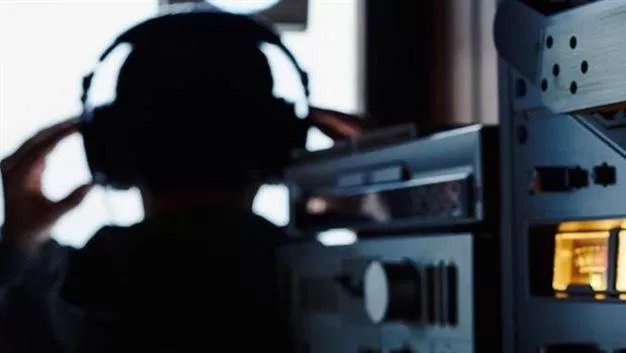
Is the recent hunt on alleged Russian spies a cunning attempt to conceal the Kremlin ties with people around President Djukanovic? Djukanovic and his chief advisor Milan Rocen are accused of being the prime Russian asset in the country
Montenegro Parliament’s Security and Defence Committee held a public hearing over the recent operation of the country’s National Security Agency (NSA) which allegedly was conducted together with its “western partner services”. Reportedly tens of Russian spies were arrested. However, the public hasn’t heard a single Russian spy name. Only the name of a retired Foreign Ministry official Radomir Sekulovic and his best man came out. Mr Sekulovic was allegedly the head of Russian spy network in Montenegro. At the end, instead of espionage, the aforesaid two men have ended up being charged for illegal possession of a pistol and a few bullets. Some media published “reliable NSA information” that Sekulovic “had confessed everything” and therefore he was spared from indictment. Sekulovic publicly denied the charges.
Espionage and connections with intelligence services has been a valued business in Montenegro since the Ottoman days and perpetuated under Yugoslavia’s strongman Josip Broz Tito. Although the Montenegrins made up only about 2.5 percent of the Yugoslav population, the share of high-ranking Montenegrins in the security services in post-war Tito’s Yugoslavia was almost ten times the average. When Tito broke with Stalin in 1948 many Montenegrins were sacked and arrested for siding with Russia. The infamous concentration camp in Goli Otok (remote island in Croatia) received a disproportionately large number of Montenegrins. Many ended up there only due to false reports and snitching since those loyal to the Yugoslav regime worked hard to turn in as many “enemies of the people” as possible. The legacy of Goli Otok has left a deep mark in the national identity of Montenegro in the following decades.
The euphoria of working for spy agencies returned big way with the “Anti-bureaucratic Revolution” in Montenegro and its “spontaneous protests” in 1990 organized by the Serbian intelligence service (UDBA) under Slobodan Milosevic and his Yugoslav Army Counterintelligence Service (KOS). The result was the installation of Momir Bulatovic, Milo Djukanovic and Svetozar Marovic to run the puppet regime in Montenegro. In the fervour of Greater Serbian nationalism and the unfolding war, the notorious trio persecuted everyone who was considered pro-western, liberal and democratic. Journalists, human rights activists, opposition leaders and anyone who opposed war, mafia and corruption were regularly labelled as CIA, MI-6, and BND collaborators. On the other hand, Serbia, Russia, and China were role models.
Now, formally speaking, the situation is reverse. Once dominant Democratic Party of Socialists (DPS) and its leader Milo Djukanovic cry about “malignant influence” of Russia and Serbia everywhere. Moreover, they claim that they fight against the new enemies together with “partner services” – the same CIA, BND and others which the DPS once termed as “enemies of Serbian people and Montenegro”. However, the Chinese Communist Party (CPK) remains revered by both President Djukanovic and his archenemies in the Democratic Front (DF). Both Djukanovic and the DF leaders sent warm regards and praises to the Chinese for the recent CPK Congress.
The public hearing before the Parliament’s Security and Defence Committee (SDC) held on October 28 largely resembled the well-known television comedy – Balkan Spy. SDC summoned the recently sacked National Security Agency’s (NSA) chief Savo Kentera and the dismissed Foreign Minister Ranko Krivokapic. The idea was to review the recent NSA operation allegedly conducted with “Western partner services”. According to Mr Krivokapic’s statement at the time of the alleged operation “dozens (of spies) have been apprehended”. At the end, it was much ado about nothing.
The news outlets further reported that among 28 “Russians” who were declared personae non gratae, several of them were actually Serbian citizens. The first on the list is Vladimir Bozovic, the (pro-NATO) ambassador to Montenegro who was already declared persona non grata in the last days of the outgoing Djukanovic-led government in 2020. Others are Vladimir Mandic– a former Serbian handball national team player and Dane Sijan – also famous handball goalkeeper in the former national team of Serbia and Montenegro. The list reportedly includes prominent church figures – Podgorica archdeacon Velibor Dzomic and Dajbabe Monastery Abbot Danilo. Dzomic used to coordinate the Legal Council for the Diocese of Montenegro and was often seen in the company of Djukanovic’s tycoons. In addition to the aforesaid, six employees of the Russian Embassy in Podgorica were expelled. Thus the official embassy staff came down to the ambassador and his chargé d’affaires.
The SDC chairman and one of the leaders of the Democratic Front (DF), Milan Knezevic accused Djukanovic-faithful ex NSA boss Kentera for “targeting the entire Serbian nation and its priests” and added that Kentera was “a registered CIA agent”. Knezevic pointed out that “if anyone should be arrested and interrogated that’s none other than Milan Rocen. He is the chief Russian operative in Montenegro”. Mr Rocen is top Djukanovic’s advisor in charge of his foreign policy and capital investments. He was also the protégé of arrested and then released Mr Sekulovic.
Former foreign minister Krivokapic accused Knezevic of “following orders from outside”, alluding to official Belgrade and the Kremlin. Knezevic retorted that whoever claimed that he worked for foreign interests is “a damn liar and a scoundrel”.
The former NSA chief Kentera said at the beginning of his testimony that his late father had built a church to St. Sava in Pastrovici, whereas he attended church services when others did not dare (in communist days). He added that “those who have no respect for this state, her institutions and the system should have no business here”. Kentera explained that “all those names were put on the list for a reason”. Kentera, just like Krivokapic before, tried to connect his sacking with the alleged operation against the Russian spy ring. “We started to eliminate the spy network but we were eventually foiled in the middle of it” Kentera said.
Prior to being appointed to head the NSA in a compromise between reformist Prime Minister Dritan Abazovic and his opponent President Djukanovic, Kentera was heading the Atlantic Council of Montenegro (ACofM) for many years. He was often seen in the company of American and other Western diplomats and officials of the Alliance. Kentera-led NGO was formally propagating Montenegro’s NATO accession. ACofM also received generous donations to set up the Digital Forensic Center (DFC), which was meant to fight disinformation and promote Western values.
However, in mid-September 2021, DFC published a detailed study of Russia’s Influence in the Balkans – The Case of Montenegro. The Study was translated and distributed to foreign diplomats by DPS officials. The contents of the Study on Russian malign influence in Montenegro pretty thoroughly rely on DPS party communiques and the narratives of the former Chief Special Prosecutor Milivoje Katnic (who was previously a loyal military counterintelligence official under Slobodan Milosevic).
The DFC study “studiously” avoided any reference to well-known links of Djukanovic’s and his DPS with Russian intelligence, mafia and oligarchs. DFC conveniently dropped to mention that Russia was the key international player which supported Montenegrin independence back in 2006 and that disgraced Trump’s campaign chief Paul Manafort had been hired with Russian money to campaign for Montenegro’s independence. The DFC pointed to the cooperation agreement of Milan Knezevic’s Democratic People’s Party (DNP- part of the Democratic Front coalition) signed with Putin’s United Russia. On the other hand, the DFC skipped to mention that Djukanovic’s DPS had signed the same strategic cooperation agreement with Putin’s party already back in 2011 and has never revoked it since. Then DPS spokesman Rajko Kovacevic (and later Djukanovic’s chief of staff) said “that DPS does not recognize the (Putin’s) party as dictatorial. United Russia is a party that has 315 out of 450 deputies in the Russian Duma. Thus we are the right address for talks and strategic cooperation and interests that we want to develop”. The DFC also bypassed a large number of State Department reports on Russian money laundering in Djukanovic’s fiefdom and the installation of Russian intelligence agents in the state institutions of Montenegro under Djukanovic-led government. Furthermore, the DFC study does not contain a single word about havoc wreaked in Montenegrin economy by KGB/FSB “investors” who had taken over Podgorica Aluminium Plant (KAP), Niksic Steel Mill and prestigious hotels on the coast. The Russian “investors” walked away with hundreds of millions of euros and left further hundreds of millions of debts – all with the blessing of the supposedly pro-EU and pro-NATO DPS authorities. The property of Oleg Deripaska is still intact and safe in Montenegro even though Deripaska is under Western sanctions introduced after Russia invaded Ukraine in February this year.
It is also interesting that all To Be Secure (2BS) conferences of the Atlantic Council and Mr Kentera were held in Hotel Splendid. Its founder and majority owner is none other than the former director of the KGB/FSB General Viktor Ivanenko. His ownership is easily verified by a simple check in the public business registry – CRSP. The fact that a retired chief intelligence officer of Russia owns a prestigious hotel chain in Montenegro seems to be totally irrelevant to Kentera’s Atlantic Council and thus unworthy of a single reference in the DFC Study. Moreover, the profile of widely known main hotel guests and tenants who are from the same criminal and intelligence milieu is something that the DFC study chooses not to mention at all. Perhaps this is among the reasons why the main Western embassies have been very silent on the dismissal of pro-Djukanovic Kentera, Ranko Krivokapic and Rasko Konjevic (former defence minister). In informal conversations with Monitor, several diplomats from the old members of the Alliance pointed that the main Russian influence in Montenegro was still exercised through people in Presedent Djukanovic’s inner cirle “because the lucrative ties with the Russian mafia and intelligence are not something that you easily cut off, despite sweet-talking rhetoric”.
Andrija Mandic –another leader of the pro-Russian Democratic Front (DF) indirectly admitted at the public hearing that Russia prefers Djukanovic’s DPS over his political organisation for strategic cooperation whereas his DF is reduced to the role of “useful idiots” (KGB terminology). “While we were fighting the biggest battle to preserve our common state (with Serbia), do you know who was supporting independent Montenegro? Exactly those (Russian) partners of Milan Rocen” adding that the DPS “didn’t mind their help to achieve independent Montenegro… the (intercepted) phone conversations have been published, there’s evidence and now you play completely dumb and point finger at us”. In addition, Andrija Mandic implicitly admitted that during so-called coup d’état trial the Serbian services were actively helping Djukanovic and Katnic (former Chief Special Prosecutor) by supplying them the so called evidence.
Moreover, Mr Mandic compared the current role of Mr Rocen to the role of Tito’s chief intelligence officer, Ivan Stevo Krajacic. He explained that “after Krajacic’s death, Russian agents came to take over his radio station which he used to report to Moscow frequently”. Thus, “what Stevo Krajacic used to be in Tito’s Yugoslavia, now is Milan Rocen in Montenegro”. Mandic added that Mr Rocen is “the main protagonist of (Kentera’s) values” with whom he chases “alleged Russian agents around Montenegro and play double and triple games of all kinds in the security services theatre”. Mandic further revealed what socializing with foreign diplomats looked like from his side during August 2020 elections saying that “the lead person on our list (former PM Zdravko Krivokapic) could hardly wait (after electoral victory) to go to the American embassy and ask what he should do”.
The pro-Djukanovic and the pro-Serbian media in Montenegro have been visibly silent on allegations against President Djukanovic’s chief adviser Milan Rocen that he is the actual head of the Russian spy ring in Montenegro. DPS-controlled media are silent about its ties with Russia, while pro-Serbian portals find it hard to digest that much beloved Putin prefers Milo over Montenegrin Serbs. So far, the Prosecutor’s Office hasn’t responded to direct calls of the Prime Minister Dritan Abazovic and the DF leaders to investigate Rocen’s and Djukanovic’s links with Russia.
Memory of love
Despite the strategic orientation of Montenegro, relations with Russia will always be among the mainstreams of our strategic foreign policy. No one can replace Russia – neither the European Union nor NATO. These are not empty words – Milan Rocen (RIA Novosti 2007)
Jovo MARTINOVIĆ
Komentari
Kolumne
-

ALTERVIZIJA / prije 19 sati
Multipolarni haos
Milan Popović
-

DANAS, SJUTRA / prije 1 sedmica
Vladina čudesa
Zoran Radulović
-

DANAS, SJUTRA / prije 2 sedmice
Lubenice i meritornost
Zoran Radulović
-

DUHANKESA / prije 2 sedmice
Pohvala sportu, da žive razlike!
Ferid Muhić
-

ALTERVIZIJA / prije 2 sedmice
Novi fašizam i lumpenproletarijat
Milan Popović

Novi broj


REKONSTRUKCIJA VLADE: A kad tamo – još jedan parlament

VLAST U ODBRANI NACRTA FISKALNE STRATEGIJE: 600 = 700. I tačka

VUČIĆEVO OKRETANJE ZAPADU: Litijum Evropi za opstanak autokratije
Izdvajamo
-
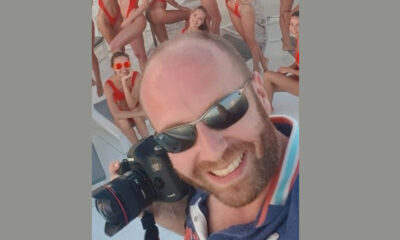
 IN ENGLISH3 sedmice
IN ENGLISH3 sedmiceThe case of Vitaliy Grechin’s group and girls allegedly rescued in Porto Montenegro: Fight against human trafficking or scapegoating for box-ticking
-
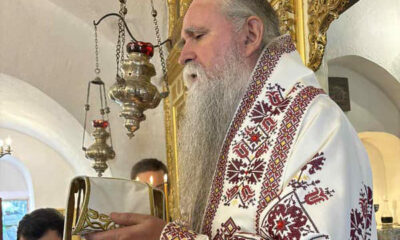
 HORIZONTI4 sedmice
HORIZONTI4 sedmiceEPISKOPI SPC – LJETNJE POSRBLJAVANJE CRNE GORE: Parastosi saradnicima fašista
-
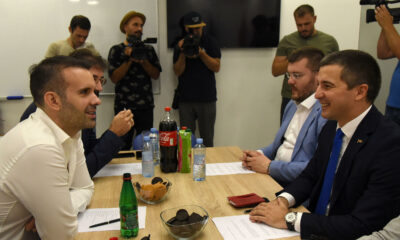
 FOKUS3 sedmice
FOKUS3 sedmiceREZOLUCIJA O JASENOVCU, I POSLJEDICE: Čistači komšijskog dvorišta
-
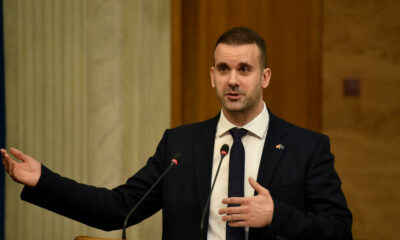
 Izdvojeno4 sedmice
Izdvojeno4 sedmiceDVOJNO DRŽAVLJANSTVO: Pazi, lomljivo
-
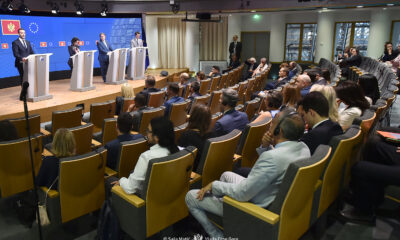
 FOKUS4 sedmice
FOKUS4 sedmiceIBAR STIGAO U CRNU GORU: A sad povratak u stvarnost
-
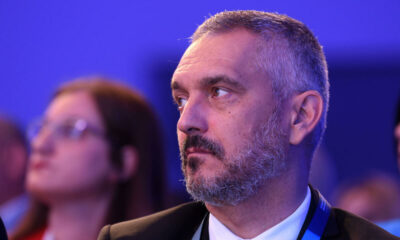
 DRUŠTVO4 sedmice
DRUŠTVO4 sedmiceSUD PONOVO VRAĆA BRĐANINA NA ČELO POLICIJE: Kontinuitet vladinih nezakonitosti
-

 Izdvojeno3 sedmice
Izdvojeno3 sedmiceBRANKO ĐURIĆ ĐURO, MUZIČAR, GLUMAC, REDITELJ, SCENARISTA, PISAC…: Od nadrealnog do realnog
-
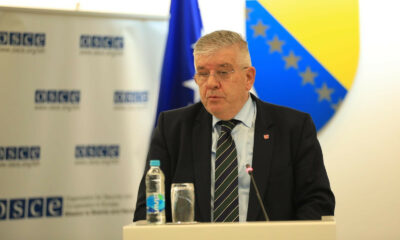
 INTERVJU4 sedmice
INTERVJU4 sedmiceDRAGAN MIOKOVIĆ, PREDSJEDAVAJUĆI ZASTUPNIČKOG DOMA PARLAMENTARNE SKUPŠTINE FEDERACIJE BIH: BiH se ipak kreće






